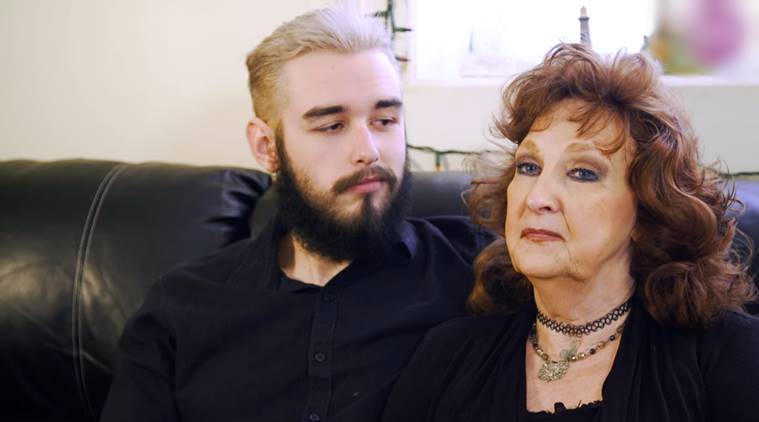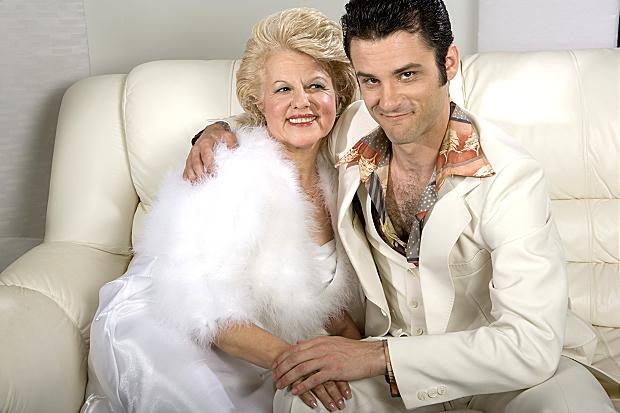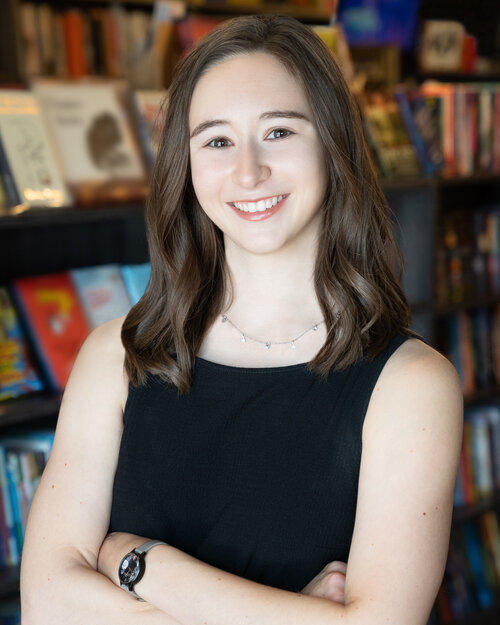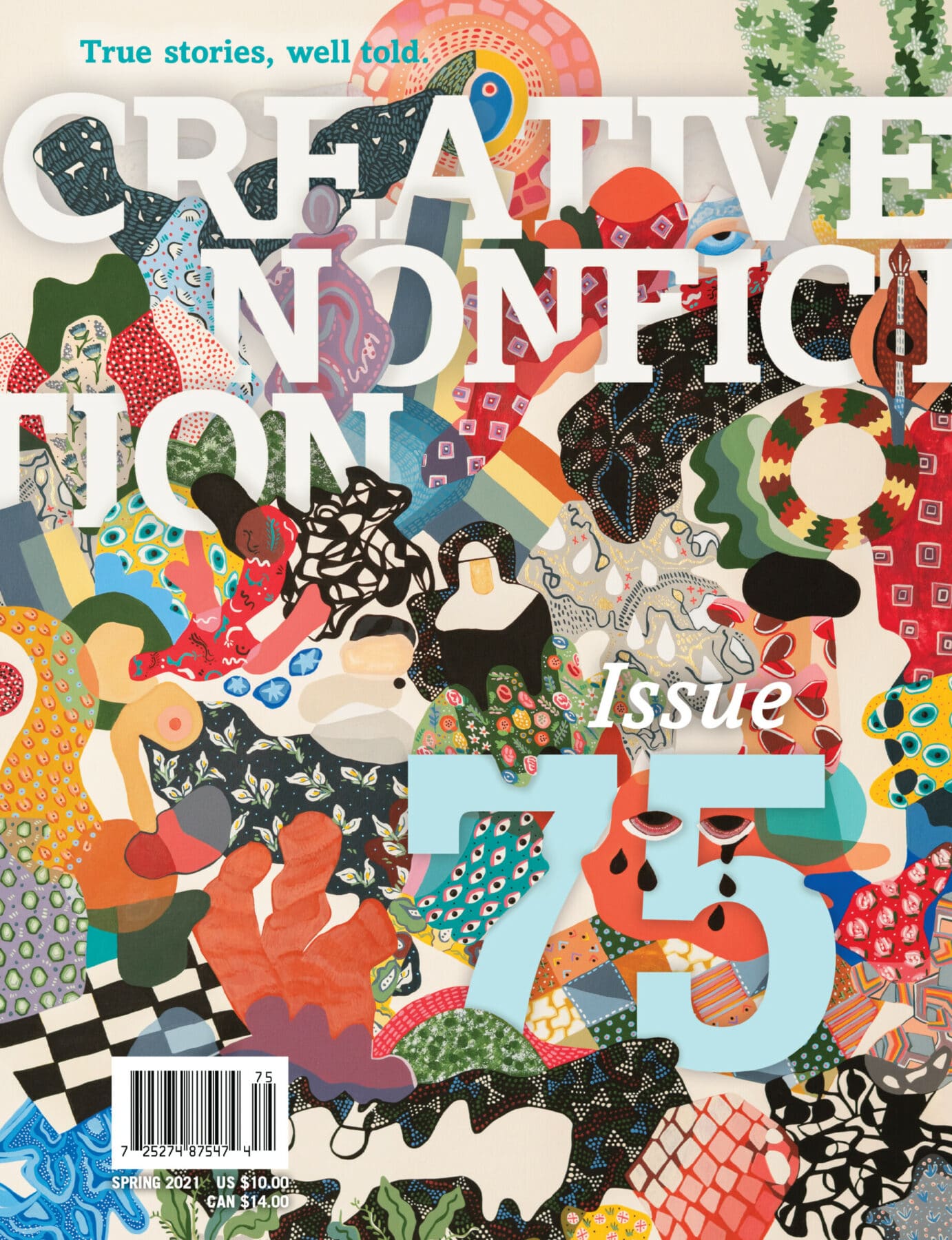The New Yorker
Thursday, September 30, 2021
The New Yorker pays well for fiction, poetry, humour, and cartoons
Wednesday, September 29, 2021
Peacekeeper’s Daughter by Tanya Bellehumeur-Allatt available now
Peacekeeper’s Daughter by Tanya Bellehumeur-Allatt
Tanya Bellehumeur-Allatt holds an MA in English
Literature from McGill University and an MFA in Creative Writing from UBC, and these days, she
lives in Quebec’s Eastern Townships with her husband and four children.
But Tanya was born in Germany
to French-Canadian parents and grew up on various army bases across Canada,
from Quebec’s North Shore to Yellowknife, Northwest Territories. When she was
twelve years old, her family moved to Tiberius, Israel, where her father served
as a United Nations peacekeeper on the Golan Heights. When war broke out with
Lebanon, Tanya and her family moved to Beirut, where they lived for seven
months, at the height of the Lebanese civil war.
Tanya’s journal from
1982-1983 became the seeds of her memoir, Peacekeeper’s Daughter.
 |
| Tanya |
Peacekeeper’s
Daughter is both a coming-of-age story and an exploration of family dynamics,
the shattering effects of violence and war, and the power of memory itself to
reconcile us to our past selves, to the extraordinary places we have been and
sights we have seen.
Read an excerpt of Peacekeeper’s Daughter here.
Published by Thistledown Press, Peacekeeper’s Daughter is available now. Order your copy now from the publisher here, Chapters here, or order it through your local bookstore, here.
***
See Brian Henry’s upcoming weekly writing classes, one-day
workshops, and weekend retreats here.
Monday, September 27, 2021
“Rescuing Rusty” by Connie Taylor
I hated her. I hated her until I
wanted to kill her. Listen, I’m a nice guy, but my wife is Wicked Witch Wanda.
She had the money, I had the charm.
Now, she’d stopped my allowance.
“What are you doing today, Jackson?” she asked, peeking
over her newspaper.
We didn’t talk much these days. In fact, I was
rather pissed at her. She hated it when I didn’t talk to her. She was thirty
years older than me, richer than God. Did she think I was here for wrinkles and
red hats? Jesus.
“I’m not doing much today,” I responded, refusing
to make eye contact with her over the sports section. She hated that too. Good!
She could rot in hell. Cutting off my allowance. Reneging on the promises she’d
made me. Come on. What the hell did she think this was? True love?
I cut up a piece of breakfast sausage, held it
under the table for Rusty. My dog was the only thing I liked in this bloody
house.
I waited. No Rusty. In fact, I hadn’t seen him
this morning.
“Oh,” Wanda said. “Rusty isn’t here.”
“I can see that.” She knew I loved my dog. Rusty
and I had been through thick and thin. When my first wife died of cancer and
I’d lost everything I owned, Rusty had been there. When I had to live in my car
for a year, Rusty had been there. For everything that mattered, Rusty had been
there.
“Rusty’s not coming back,” Wanda said. She
actually sounded happy about it.
“What?” I glared at her across the table.
“Well, look who’s giving me his full attention.
It’s about time,” she whined. The type of whine only a born-rich debutante
who’s never endured any significant suffering in life can whine. “I deserve
respect.”
“Yeah. We all deserve a lot of things, Princess
and I deserve my dog. Why are you being such a bi…”
“Stop it, Jackson! Your precious Rusty can come
back. As soon as you come back to my bedroom and do what you’re paid to do.”
“I haven’t been getting paid lately,” I said. “So
I’m not particularly motivated.”
“Well, Dearest, I thought that might be a
problem.” She pulled a wad of bills from her pocket and threw them at me. I
caught them with one hand, started counting the bills. Generous. This was about
a month’s worth of generous. “Tonight. My bedroom,” she demanded. “Eight p.m.
and you’ll have your dog back tomorrow. Otherwise, I don’t think poor Rusty
will survive.”
I felt my face heat up. What a bitch. Damn it. I
had done this to myself. To Rusty. Things needed to change. Today.
I stalked out of the house without saying another
word. I knew where Rusty was. Wanda thought I was stupid. I wasn’t. Gloria, her
housekeeper, had Rusty stashed at her apartment in Glenview. As I drove away
from the house, I figured Wanda would be having her one allotted cigarette in
about ten minutes. I hated smoking, but today, it was going to change my life.
I felt a great sense of satisfaction. Thank god for gas leaks. Especially the
ones that looked accidental.
I’d just reached the road when the house exploded
in a huge ball of fire. Wanda had her cigarette early I guess. I smiled. My
wife was literally toast. I slammed the brakes, skidded to a stop as neighbours
came running. Time to act sad. Time to go through the grieving husband routine.
After that, me, Rusty and Gloria were going to live happily ever after -- Anywhere
else but here.
Connie Taylor is an Operations Manager by day, a writer and reader by night. Her writing
aspirations began in grade school with her heroine, Pantoulia, who leapt over
football fields of fire. She’s contributed to the Journal of Integrated
Studies and the Fifty Word Stories website. She
enjoys writing both fiction and nonfiction stories.
“Rescuing Rusty” was originally written as an assignment
for one of Brian Henry’s writing classes and was previously published on Close
to the Bone. For information on submitting to Close
to the Bone {and a few other places} see here.
See Brian Henry’s upcoming weekly writing classes,
one-day workshops, and weekend retreats here.
Saturday, September 25, 2021
“What a Car!” by Carolyn Wilker
/stories/2018/08/297431.jpg) |
| Camaro |
A car pulled into the driveway, tires crunching in the snow that crisp January
evening. Its headlamps lit up my bedroom window, but since I wasn’t expecting
any company, I paid no attention. I heard the car door close, and soon after
the doorbell rang.
My landlady called
upstairs and said that I had a visitor.
Who
it could be?
There was Dad with a huge
grin on his face, a sparkle in his blue eyes, and a set of keys in his hand.
I didn’t expect to see my
father that night – and much less did I expect him to be there with a car for
me to test drive.
“I made a deal at Elliot’s
today,” he said. “Thought you’d like to see it.”
On the weekend, we had
talked about the possibility of trading my trusty Corvair for another car, but
I hadn’t expected anything this soon.
“Want to go for a drive?”
he said.
Of course, I wanted to
drive it! I ran up the stairs and pulled on my winter coat, taking a quick look
out the window as I put it on. Under the reflection of my landlady’s outdoor
light was a ’68 lemon yellow Camaro. Whooee!
I hurried down the stairs
and out the door to where Dad waited, keys in hand.
I got in, readjusted the
seat, rearview mirror, and side mirrors, and off we went for a drive around
Waterloo.
“Do you like it?” he
asked. “Is it a good fit?”
I agreed on both counts. I
liked it very much.
When we returned to my
landlady’s home, we sat in the car and talked about how much it would cost and
how soon I could have it. One thing was for certain, I’d have to get a loan
from the bank. Dad was willing to co-sign. All he needed was my approval and he
could complete the deal. We would make the appointment at the bank the next
week.
/stories/2018/08/91101.jpg) |
| Corvair |
I
had been driving a silver 1960 Corvair that once belonged to my grandfather
Ted. My parents bought it from him when he decided to move to Florida. The
Corvair had taken me safely and reliably to my weekend job at the nursing home
during my last year of college, and then on the commute to Waterloo, where I
boarded while working in a day care centre.
The Corvair was an
experiment, with its engine in the back, and the trunk under the front hood.
Ralph Nader had criticized General Motors soundly for it, but as it had been
for my grandfather, the Corvair was a good little car that delivered a smooth
ride. Its seat was just right for my short stature as it had been for my
grandfather.
Grandpa Ted had always
driven slowly down the freshly gravelled country roads so the car wouldn’t get
stone chipped; its body was still in excellent shape. Dad said that it might run
awhile yet, but sooner or later it would require some new parts and getting
parts would be an issue, since the car was no longer being made. My favour,
once set on the Corvair, was shifting rather quickly to the sporty Camaro, both
for its appearance and for the practical reasons that Dad had explained.
The Camaro had just been
traded in by a priest, who had purchased a brand new vehicle. The lack of stone
chips on its shiny fenders and hood meant that the priest had treated the car
with as much care as my grandfather had with the Corvair. The interior was
clean and the upholstery looked like new. The Camaro was set low and the seat
was easily adjusted. I felt like a queen behind the wheel, even if my bank book
didn’t reveal a queen’s pay.
Dad and Mom said they’d
cover the down payment temporarily, but I’d have to pay it back by March, so
they could buy fertilizer for spring planting. I’d also need new snow tires to
navigate the country roads. I was getting poorer by the minute and I hadn’t yet
paid a cent for the car. Of course, I still wanted it. It was a dream car.
Dad drove the Camaro home
that night and closed the deal the next day. I drove home for the weekend in my
soon-to-be-retired Corvair, and Dad gave me lessons on changing tires, testing
spark plugs, checking the oil level, and knowing when to add oil, as he had
when I first drove the Corvair.
On Monday, after a trip to
the bank, and an offer from the manager to work there, I left for the day care
centre. When I drove into the parking lot, Penny, a fellow teacher, was out
supervising children in the playground area. She whistled as I got out of the
Camaro and approached the gate.
“Where’s the fancy clothes
to match the car?” she asked, with a cheerful grin.
“Spent it all on the car,”
I said, and I had.
 |
| Dodge Dart Swinger |
It eventually needed a
paint job, after someone backed into it in a parking lot at another day care
centre. The driver had mistaken the Camaro for a snow bank on a dark winter
morning. The supervisor, arriving in daylight, noticed the dent in my car. The
parent admitted to his error and offered to pay for the repair and paint job,
and I had it painted the same lemon yellow as before. The colour reminded me of
sunshine – a particularly cheering sight on a gloomy day.
My future husband noticed
me driving this car, so I suppose it was good for more than taking me places in
style. We continued to drive the Camaro after he sold his fancy, gas-guzzling
purple Swinger.
When our first child was
born, she had to ride in her baby seat up front, since her car seat didn’t work
on the narrow back bench. About the same time, my car showed signs of rust, and
so we agreed it needed to be patched and painted. I loved the lemon yellow and
only grudgingly let my car be painted an electric blue. That wasn’t as painful as
the white hood stripes and the wire trim that my husband said would suit it. He
must have been missing his Swinger more than he let on.
We had barely brought the
car home with its new paint job, when our neighbour, Larry, came across the
street and offered to buy it. I was glad he liked it so much, because I didn’t.
Those white hood stripes and wire trim had turned my car into something
foreign. We made the deal with our neighbour, and we went out that week and
bought our first family car – a station wagon.
But I always remember the
first real car that I bought with my own money: a sporty, lemon yellow Camaro
that turned heads when I drove by.
Carolyn Wilker is
an author, editor, and storyteller from Kitchener, Ontario. She blogs
at https://www.storygal.ca/
See Brian Henry’s upcoming weekly writing classes, one-day workshops, and weekend retreats here.
Tuesday, September 21, 2021
Four agents at Salky Literary Management seek fiction and nonfiction for adults and children
Salky
Literary Management
New York, NY
https://www.salkyliterarymanagement.com/
Don't ever miss what’s happening with Quick Brown Fox.
If you’re not yet on my newsletter, send me an email, including your locale
to: brianhenry@sympatico.ca
~Brian
Salky Literary
Management (SLM) is a boutique literary
management agency. And it’s new, having been established in 2019. “We represent
authors whose stories inspire us. If you are a SLM or CSLA client, you are part
of a group of authors that are changing the world through their stories. We are
proud to stand in service of that mission.”
Salky has four agents, but for
new authors, your best bet is probably with their least established agent:
Rachel Altemose is a junior agent and has been with Salky Literary Management since its inception. Prior to SLM, she interned at Eden Street Literary Agency and attended the Columbia Publishing Course.
Rachel is seeking picture books, Middle Grade, and Young
Adult manuscripts. She’s also interested in literary fiction for adults and in narrative/serious
nonfiction.
Rachel is a lifelong lover of storytelling and
graduated from Vassar College with degrees in English and drama. She is
interested in a diverse array of genres (children’s through adult) and is
particularly keen on narratives with unique voices, diverse perspectives,
immersive settings, complicated familial relationships, young/twenty-something
protagonists, magical realism/surrealism, or experimental style.
Query Rachel through the agency’s query manager here.
Submissions page here.

Kate Hearn, Editorial Director,
Annick Press
If you’re interested in meeting an agent and in getting published, don’t
miss our online How to Get
Published workshop with literary agent Olga Filina of 5 Otter Literary, Saturday, Sept 25. Details here.
If you’re especially interested in writing for children or for young adults, don’t miss out Kid Lit workshop, Sunday, Nov 14, with guest Katie Hearn, editorial director, Annick Press Details to come but reserve your spot now. These workshops fill up fast. Email: brianhenry@sympatico.ca
Beyond
that, Brian Henry’s schedule continues to take shape...
September
~ Weekly classes ~ Still space in one class:
In-Person: Writing Personal Stories, 9 weeks of
creativity and companionship. Wednesday evenings, Sept 29 – Nov 24, in
Burlington. Details here.
October
Online: Writing for
Children and for Young Adults, Saturday, Oct 2, with guest
Anne Shone, executive editor, Scholastic Books (see here) –
This workshop is full.
Online: How to Write Great Characters, Saturday, Oct 16. Details here.
Writing
Retreats:
Lake Joseph in Muskoka: Writing Retreat at Sherwood Inn Resort. Friday, Oct 23 – Monday, Oct 25. Details here. Note: This retreat is now full. Next fall, we’ll offer two retreats at Sherwood to accommodate everyone.
In the meanwhile, we arranged an end of summer retreat Sept 10 – Sept 13 at The Briars on Lake Simcoe and we'll also offer a retreat in March at the Briars if people are interested – let me know!
Plus, registrations are now open for ...
Algonquin Park: Writing Retreat at Arowhon Pines Resort, Friday,
June 3 – Monday, June 6. Details here.
***
Navigation tips: Always check out the Labels underneath a post; they’ll lead you to various distinct collections of postings. If you're searching for more interviews with literary agents or a literary agent who represents a particular type of book, check out this post.
A few spots still open: Online workshop ~ How to Get Published, this Saturday, Sept 25, with literary agent Olga Filina

Lake Effect by Dayle Furlong
represented by 5 Otter
How to Get
Published
An editor & a literary agent tell all
Saturday, September 25, 2021
1:15 – 5:00 p.m. Toronto time
Online and accessible wherever there's Internet
If you've ever dreamed of becoming a published
author, this
workshop is for you. We’ll focus on the process of submitting to an agent or
publisher, and show you exactly how to write a query letter that will get a
“yes!” Bring all your questions! Come and get ready to be published!
Special Option: Participants are invited to prepare a draft of a
query letter you might use to interest an agent or publisher in your book. You
don't need to prepare anything, but if you like, email me a draft of your query
prior to our workshop. Olga and I will critique several queries, perhaps
half a dozen, so everyone can see what works, what doesn’t and how to improve
your query. Do remember that agents come to these events wanting to hear
what you’ve got and hoping to find authors they want to represent.
Guest speaker Olga Filina is a Literary Agent and Partner with 5 Otter Literary.
Olga brings over twenty years of book industry experience to her work as an agent. From bookseller and buyer at national and independent bookstore chains, to director of literary festivals, library board member, publishing consultant, independent editor, book reviewer, and founding member of the Professional Association of Canadian Literary Agents, Olga has the specialized knowledge to find the best direction for her clients’ work.
Olga is currently looking for literary and book club fiction,
historical fiction, crime, mystery, and suspense novels. She also wants prescriptive
nonfiction projects, and memoir with exceptional writing, focusing on
underrepresented voices.
In
Kid Lit, she is looking for middle grade fiction with memorable characters,
contemporary YA, and nonfiction across all categories.
Workshop leader Brian Henry has been a book
editor and creative writing instructor for more than 25 years. He
publishes Quick Brown Fox, Canada’s most popular blog for writers,
teaches creative writing at Ryerson University, and has led workshops
everywhere from Boston to Buffalo and from Windsor to Charlottetown. But his
proudest boast is that he has helped many of his students get their first book
published and launch their careers as authors.
See reviews of Brian's classes and workshops here.
Fee: $43.36
+ 13% hst = $49paid in advance by mail or Interac
To reserve a spot now, email: brianhenry@sympatico.ca
Note: Don't
ever miss a post on Quick Brown Fox. Fill in your email in the box to the right
under my bio, and get each post delivered to your Inbox. ~ Brian
See Brian Henry’s upcoming weekly writing classes, one-day workshops, and weekend retreats here.
Sunday, September 19, 2021
Markets for your short stories, reviews, personal essays and other nonfiction
Note: You can hang out and
chat with quick brown foxes and vixens on my Facebook page (here). Just
send a friend request to Brian Henry
Also,
if you’re not yet on my newsletter, send me an email, including your locale,
to: brianhenry@sympatico.ca ~ Brian
The Quilliad Press publishes
the writing and art of emerging and established Canadian authors,
photographers, and other visual artists. “We care more about the quality of
your work than your past publications.”
Quilliad looks for work
that engages with the weird; that includes magic realism, literary science
fiction, apocalyptic stories and poetry, retold/re-imagined fairy
tales/folklore/myths, horror, and other spooky, speculative, dark, and macabre
work.
Send poems (up to 5),
flash fiction (up to 5 pieces), short fiction (up to 2,500 words preferably),
visual art, and photography.
“We read every
submission and consider all submissions seriously.”
Open for submissions Aug 30 to Sept 30. Guidelines here.
Zoomer magazine and Everything Zoomer website
invites writers and artists to submit pitches. We read all submissions but will
only contact you if we’re interested in publishing your material.
Email submissions to: p.muggeridge@zoomermag.com
Tint Journal is an online journal for English as a second language writers.
They accept submissions for their In Conversation section year-round. In this section, they publish ESL book
reviews, ESL writer profiles and interviews with ESL writers. They consider any
writer ESL (English as a second language) who has acquired or learned the
English language after they have been fluent in another language.
They accept creative writing submissions by ESL writers and artwork submissions by artist of all backgrounds for their biannual literary issues only within open call periods.
See submission calls here.
Vox is actively seeking contributors to their Best Money I’ve Ever Spent essay series.
They're also looking
for first-person essays that use personal stories and unique perspectives to
explain the most important news stories of the day.
They also want feature stories, science stories, etc.
Payment varies
Guidelines
here.
Creative Nonfiction: True stories, well told. Creative Nonfiction is arguably the world’s most
prestigious journal for creative nonfiction. Nonetheless, it draws heavily from
unsolicited submissions, and a typical issue contains at least one essay by a
previously unpublished writer.
“Surprise us! The only rules are that all work
submitted must be nonfiction and original to the author, and we will not
consider previously published work."
Length: 5,000 – 10,00 words. Pays $300. Note: There is a $3 fee to submit online. No charge for snail mail.
Guidelines here.
Quick Brown Fox Quick Brown Fox welcomes your book reviews and
your short stories, poems, and essays about reading, writing, favourite books,
and libraries. Read a few essays on the blog to get a taste of what other
writers have done (see here and scroll down).
Quick Brown Fox also welcomes reviews of
any kind and of anything, anywhere or anybody. If you want to review your
favourite coffee shops or libraries, babysitters or lovers (no real names
please), go for it. See examples of book reviews here (and scroll down); other reviews here (and
scroll down).
Submit to: brianhenry@sympatico.ca
Include a short bio at the end of your
piece and attach a photo of yourself if you have one that’s okay.
See Brian Henry’s upcoming weekly writing classes, one-day
workshops, and weekend retreats here.



















